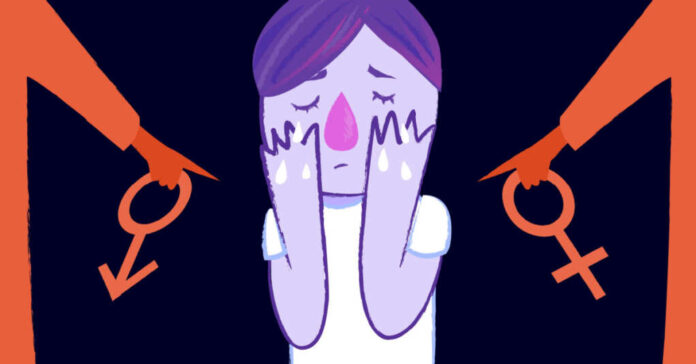
Following a bombshell article in the Free Press, whistle-blower Jamie Reed, formerly of the Washington University Transgender Center at St. Louis Children’s Hospital, faced harsh criticism for her allegations that the clinic was issuing “gender-affirming” care and treatment to kids without addressing their underlying psychological issues.
In February, the pediatric gender care clinician expressed her reservations and concerns about the shortcomings of the clinic, stating that it delivered “gender-affirming” treatments without establishing consistent measures to detect minors struggling with underlying mental health challenges. These mental issues, she asserted, contribute to the alleged dysphoria and aren’t resolved through hormonal interventions, which frequently result in irreversible harm to kids.
After seven months of investigation, the New York Times confirmed the details of Reed’s allegations. After interviews with patients, staff, nearby healthcare providers, and parents, the investigation verified several key claims made by Reed.
One significant finding was that a considerable portion of teenage patients received prescriptions for testosterone treatments before addressing their underlying mental health challenges.
As the demand for gender-affirming care increased, a higher number of patients with complex mental health issues sought treatment at the facility. Documents reveal that the clinic’s staff often grappled with the best approach to help them, highlighting an ongoing debate over whether some children’s gender distress is the primary cause of their mental health challenges or the result of their ongoing psychological issues.
The clinic, facing an overload of cases, frequently turned to external therapists, some of whom had limited experience in gender-related matters, to assess the readiness of young patients for hormonal treatments. Doctors prescribed hormones to patients who received these approvals, even in cases where adolescents’ medical histories raised concerns. Some of these patients eventually stopped identifying as transgender, and they received minimal to no support from the clinic after such changes.
After learning that the clinic failed to keep accurate records of patient outcomes, Reed and several of her coworkers began keeping a spreadsheet of kids who received gender-affirming treatments despite extreme psychological concerns. The spreadsheet revealed at least 60 cases of teenagers with unaddressed mental health issues, uncertain feelings about their gender, or complicated family situations.
The sheet included one patient who was on testosterone and decided to quit their schizophrenia medication without asking a doctor. Another person on the sheet had reported hallucinations they could see and smell. Still, another had been in a mental health unit for five months.
On a different section of the spreadsheet, Reed kept track of 16 patients who had detransitioned, which means they changed their minds about their gender and/or quit taking hormone treatments.
ER staff at the facility had noticed a rise in transgender adolescents facing mental health crises to the extent that they mentioned having at least one transgender patient every shift. They expressed concerns over a lack of counseling for these patients while they were still taking hormones.
Their concerns were dismissed by clinic administrators.
Reed’s revelations put her career and personal life at great risk, but the former clinician could no longer keep quiet about the abuses she witnessed at the clinic. She wrote, “Almost everyone in my life advised me to keep my head down. But I cannot in good conscience do so. Because what is happening to scores of children is far more important than my comfort. And what is happening to them is morally and medically appalling.”
The Times faced harsh criticism for running the initial story. More than 200 contributors and employees penned an open letter to the paper, stating, “As thinkers, we are disappointed to see the New York Times follow the lead of far-right hate groups in presenting gender diversity as a new controversy warranting new, punitive legislation. Puberty blockers, hormone replacement therapy, and gender-affirming surgeries have been standard forms of care for cis and trans people alike for decades.”
It will be interesting to see if the open letter is retracted following the validation of the details of the original article.
The New York Times has never been a friend of conservatives, but this is one time they crossed party lines to address a controversial topic that places America’s youth at risk. Hopefully, the investigation’s verification of Reed’s article leads others to take stories like these more seriously and get back to being journalists rather than liberal mouthpieces.















